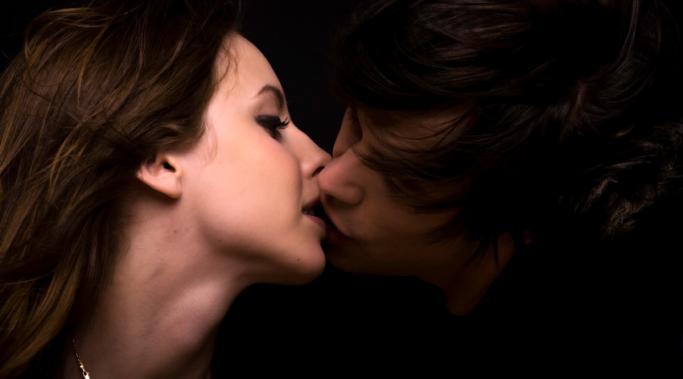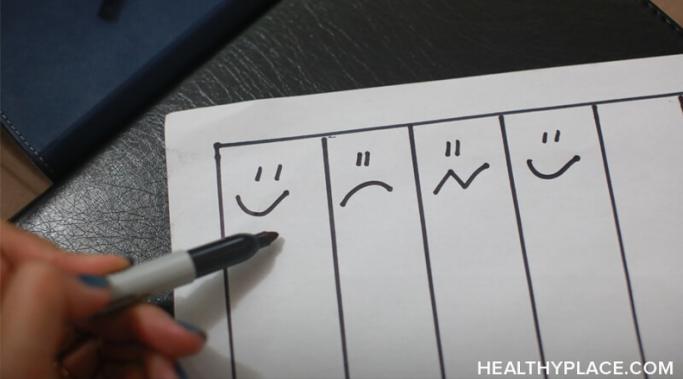I get asked about the sex life of the bipolar on a regular basis. People want to know what’s “normal” or can they have that mythical “normal” sex life. Some of these people are partners of people with bipolar and others are the people with bipolar themselves. It seems we’re all a bit mystified as to how this mental illness affects our sex lives.
Well, I can’t say what is normal for you, but I can tell you what I know about bipolar and sex.
Coping
I have been on every bipolar medication you can name and likely a few you could not. I have been on more medication combinations than I can remember. I have spent years dealing with medication side effects. There is very little medication pain that I cannot tolerate. I have taken medications that have made me feel amazingly well and bipolar medications that have made me feel intolerably ill. I’ve seen treatment miracles and treatment devastations. And still, I feel nothing but terror when I think of taking new bipolar medication.
Many people make New Year’s resolutions. I don’t endorse this practice, personally, mostly because I think people are quite unrealistic when they do it. They don’t make goals that make sense and they then place far too much pressure on themselves to turn the goals into a reality.
And possibly, if you’re bipolar, it might be even worse. You might have had the best of intentions when making a resolution like to quit smoking, take your medications as prescribed or create a set bedtime, but by now, you’ve probably noticed that you haven’t quite stuck to your resolution. And if you’re like many bipolars, you’re probably not feeling too good about that.
I have talked many times about how important a routine is in bipolar disorder (Limitations and Rules that Keep Us Safe). There are many reasons for this, but one of the main ones is because bipolar disorder is considered a circadian rhythm disorder by many medical professionals. Your circadian rhythm is critical to your functioning as a human as it tells your body when to sleep and when to be awake (among other things) and trying to go against it is like swimming upstream. Assuming bipolar disorder is, indeed, a circadian rhythm disorder, we should do everything we can to work to regulate our circadian rhythms in a healthy manner. Keeping a strict bipolar routine is one major way of doing that.
In one year I write over 100 blog articles for Breaking Bipolar. I’m honoured to say that many people have responded to this writing and it has spawned many great conversations. Popular topics this year ranged from self-harm to passing down of bipolar to your kids to the understanding of mental illness.
Check out these popular articles you might have missed.
As happens from time to time, I recently received feedback from someone who was not a fan. Anonymous's remarks included:
…The way you go about it, you’d suggest that anyone with bipolar or any kind of mental illness shouldn’t lead a full life.
Let me be clear. You can lead a full life. Anyone can. What I recommend is calibrating your definition of “full” to allow for a mental illness.
A commenter recently asked about how to handle New Year’s Eve celebrations with bipolar disorder. Basically, she was concerned because her husband wanted to celebrate New Year’s but she would rather sleep through it to keep her bipolar in check.
So the question is, what do you do if you’re feeling pressured into celebrations?
In my last article I wrote about creating reasonable expectations for the holidays and how that can help your mental health. Today, I want to talk about the stress of holidays with family.
Now, don’t get me wrong, family can be great, but more often than not, holidays cause a gathering of family members you both gel with and those you don’t and I hear from a lot of people that they hate such family gatherings. But why? Are family gatherings worse for people with a mental illness?
I believe the holidays hit everyone. Sometimes that hit is very positive, sometimes it’s really negative, but I think that hit is real and pretty universal. If it’s not parents, it’s siblings, if isn’t not kids it’s money, if it’s not partners it’s the planning of perfection. In short, there’s something for everyone to be stressed about at this time of year.
For me, personally, I can’t count the number of times I would leave my family and cry and sob for hours as I drove home. Holidays have never really hit me positively.
And as I’ve said before, even if you’re lucky enough to get a positive kick from the holidays, even good times can lead to bad health. But knowing the hit is coming, is there anything we can do to soften it?
It’s the holidays. Some people love them, some people hate them, but as a general rule, it’s tougher for people with undertreated mental illness than for others. For people battling with the symptoms of bipolar disorder, holidays and hope may be the last thing on their mind.
But, believe it or not, while the rest of the world glistens and twinkles, you too can find things to be hopeful about and things to feel grateful for, even if you happen to be in a black pit bipolar-wise.

![MP900337355[1]](/sites/default/files/styles/blog_listing/public/uploads/2013/01/MP9003373551.jpg?itok=-JTBPXwz)


![MP910218832[1]](/sites/default/files/styles/blog_listing/public/uploads/2013/01/MP9102188321-1024x684.jpg?itok=DRi_Ifa_)

![MP900440946[1]](/sites/default/files/styles/blog_listing/public/uploads/2012/12/MP9004409461.jpg?itok=xOV9k-nS)
![MP900440934[1]](/sites/default/files/styles/blog_listing/public/uploads/2012/12/MP9004409341.jpg?itok=O3b_8H6w)
![MP900446397[1]](/sites/default/files/styles/blog_listing/public/uploads/2012/12/MP9004463971.jpg?itok=XnPjhT6i)
![MP900387256[1]](/sites/default/files/styles/blog_listing/public/uploads/2012/12/MP9003872561.jpg?itok=pAwwpf5t)